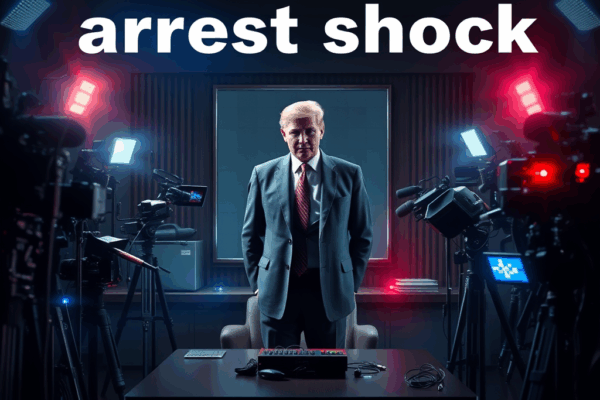The Man Who Stirred Up American Politics: The Rise of James Comey
In the heart of the gripping chaos of the 2016 U.S. presidential election, one FBI Director changed the course of history. What choice did James Comey make that shocked the world?
As FBI Director, a position meant to be neutral, Comey found himself unexpectedly at the center of American politics. While investigating Hillary Clinton’s email scandal, he made a bombshell announcement just 11 days before the election. His declaration that further investigation was necessary instantly upended the entire presidential race.
Comey’s decision became known as the “October Surprise,” shaking the political landscape to its core. Democrats erupted in fury, accusing him of election interference, while Republicans welcomed his move. Yet Comey insisted that his decision was driven by a commitment to political neutrality.
This episode cemented James Comey as a pivotal figure in American political history. His single judgment was deemed influential enough to affect the election’s outcome. Following this, his conflicts with President Trump and eventual dismissal as FBI Director kept him relentlessly at the center of U.S. politics.
Comey’s choice ignited a fierce debate over the political neutrality of law enforcement agencies. Whether his actions were right or crossed the line remains a controversial and ongoing discussion. The emergence of James Comey sent shockwaves through American politics, and the ramifications continue to unfold today.
The “October Surprise” and the Email Trap: James Comey and the Fate of the Election
Just 11 days before the 2016 U.S. presidential election, FBI Director James Comey’s shocking announcement sent shockwaves around the world. Hillary Clinton’s email scandal had reignited. In that moment, a new chapter in American political history was opened.
Why did Comey’s decision become the center of such controversy?
Unexpected Timing: Announcing this so close to the election was unprecedented. It sparked questions about the FBI’s neutrality.
Ambiguous Content: Comey only stated that “further investigation was needed” without revealing specific details. This fueled widespread speculation and conspiracy theories.
Political Impact: The announcement caused Clinton’s poll numbers to plummet and created a favorable environment for Trump.
Comey’s decision became known as the “October Surprise,” widely regarded as having a decisive influence on the election outcome. He later insisted, “It was a difficult choice, but I did the right thing.” Yet, many still question his motives.
This event raised crucial questions about the political neutrality of law enforcement agencies, the limits of external interference in elections, and the transparency of information. Whether James Comey made the right call remains a hotly debated issue.
One thing is certain: this “October Surprise” forever changed the landscape of American politics. We witnessed the astonishing moment when a single email could alter the fate of a nation.
Clash with Trump: The Moment of James Comey’s Dismissal and the Impact of the ‘Comey Memos’
On May 9, 2017, a single tweet shook Washington D.C.: “FBI Director James Comey, fired.” President Trump’s abrupt decision sent shockwaves through American politics. This news, breaking in the dead of night, was far more than a personnel change—it marked the opening chapter of a fierce battle played out on the razor’s edge between power and the rule of law.
Comey’s firing sparked many questions. Why at that precise moment? The fact that the FBI was investigating suspected collusion between the Trump campaign and Russia fueled widespread suspicion. While the Trump administration cited “restoring public trust in the FBI” as justification, critics labeled it outright “obstruction of justice.”
Yet, the real storm erupted after Comey’s dismissal. The release of a series of documents known as the ‘Comey Memos’ sent shockwaves through the political landscape. These memos contained detailed records of Comey’s conversations with Trump, revealing allegations that the president pressured him to halt the Russia probe.
“I hope you can let this go, Flynn,” Trump’s words, as recorded in Comey’s memo, detonated like a political bombshell. This episode escalated far beyond a mere political dispute, raising serious suspicions of obstruction, ultimately leading to the appointment of a special counsel.
Comey’s firing and the unveiling of the memos marked a pivotal turning point in American political history. They starkly highlighted the tension between presidential power and the independence of law enforcement agencies, offering a vivid example of how democratic checks and balances operate in practice.
In the end, the James Comey saga was more than just the firing of one individual—it was an event that shook the very foundations of the U.S. political system. His memos have etched a lasting page in history and will continue to serve as a critical reference point in ongoing discussions about the complex relationship between power and the law.
James Comey’s Call for Moral Leadership Becomes Bestselling Author
After publishing 《A Higher Loyalty》, Comey passionately spoke out for truth and democracy like no one else. How did the former FBI Director plunge into the heart of political controversy?
In 2018, James Comey released his memoir 《A Higher Loyalty》, filled with his experiences and beliefs. More than just a memoir, the book sharply criticized the current state of American politics. Comey detailed the ethical dilemmas he faced as FBI Director and his conflicts with the Trump administration.
In the bestselling 《A Higher Loyalty》, Comey emphasized the importance of “moral leadership.” He fiercely condemned politicians who distort the truth and pursue personal gain, warning against elements threatening the foundation of democracy. Notably, he likened President Trump’s leadership style to that of a “mafia boss,” exposing his unethical conduct in vivid detail.
Following the book’s release, Comey spread his message through numerous media interviews and lectures. Unlike his efforts to maintain political neutrality as FBI Director, he now actively voices opinions on political issues. His warnings about a “crisis of democracy” resonated deeply, placing him at the center of political debate.
Comey’s transformation shocked many. Having once emphasized neutrality as head of law enforcement, he now strongly expresses political views. This shift reveals the strength of his convictions and reflects his deep concern over the current political climate.
Comey’s role as an author and public figure sparked significant reaction within American society. His message received both support and criticism, igniting lively discussions about the state and future of American politics. What began as one man’s experience expanded into a national dialogue.
Ultimately, Comey’s evolution raises questions about balancing personal conviction with public responsibility. His actions are set to continue influencing American politics and society. James Comey is no longer simply a former FBI Director—he has become a powerful voice advocating for America’s moral leadership.
Controversy and Legacy: The Political and Justice Dilemma Left by James Comey
Caught between “fair investigation” and “election interference,” what shadow did Comey’s choices cast over American society? The questions he raised still await answers.
Former FBI Director James Comey’s decisions posed fundamental challenges to the boundaries of American politics and law enforcement. His actions starkly revealed the complex relationship between justice and politics, sparking debates that remain heated to this day.
The Myth of Political Neutrality
Comey’s case questions whether perfect political neutrality is truly achievable within law enforcement agencies. As FBI Director, his decisions inevitably carried political implications, prompting a reevaluation of the very notion of a “neutral investigation.”
The Dilemma of Transparency and Accountability
By publicly disclosing the Clinton email investigation, Comey sought transparency but simultaneously influenced the election outcome. This raises a thorny issue in democratic societies: how to balance information disclosure with responsible conduct.
Individual Judgment and Institutional Constraints
The impact of Comey’s personal judgment on American politics was profound. It brings forth crucial questions about how high-ranking officials’ personal decisions should be managed within institutional boundaries.
The Inseparability of Justice and Politics
The Comey episode reveals the reality that the pursuit of justice cannot be entirely disentangled from political context. This demands deeper discussions about the relationship between the rule of law and democracy.
James Comey’s legacy extends beyond his personal decisions. His case illuminated the intricate crossroads where justice, politics, law, and democracy intersect—issues that American society continues to grapple with today. Through Comey’s dilemma, we learn the importance of striving for better balance, even if perfect answers remain elusive.




